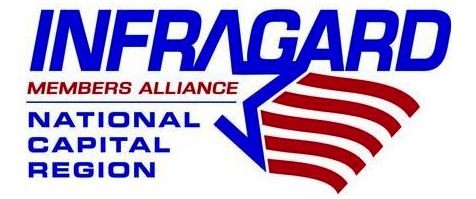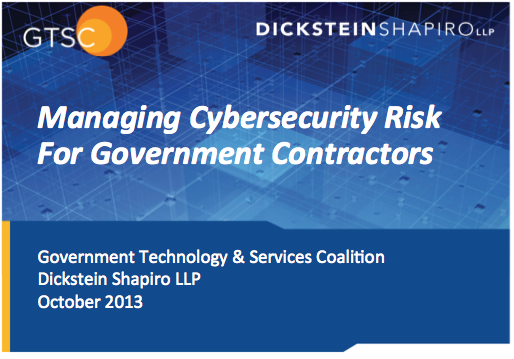Oct. 30: Halloween Happy Hour
Join GTSC for a
Halloween Happy Hour
Wednesday, October 30, 2013
5:30 pm – 9:00 pm
IRIS Lounge, Tysons Corner
Please RSVP – Costumes preferred (those in costume will receive a raffle ticket for 2 grand prizes)!
BEST costume also wins a prize!!
Proceeds to benefit the Border Patrol Foundation
www.BorderPatrolFoundation.org
About the Border Patrol Foundation
 The Border Patrol Foundation provides resources to the families of the fallen and creates awareness of the escalating risk of those who keep America’s borders safe. These services create a financial bridge through the turbulent time following a family’s loss. The Foundation supports programs improving awareness of United States border security and recognizes community leaders supporting the families of the U.S. Border Patrol. The Foundation’s volunteers have served with the U.S. Border Patrol or are professionals, friends and family committed to the importance of securing America’s borders and dedicate their lives to the same.
The Border Patrol Foundation provides resources to the families of the fallen and creates awareness of the escalating risk of those who keep America’s borders safe. These services create a financial bridge through the turbulent time following a family’s loss. The Foundation supports programs improving awareness of United States border security and recognizes community leaders supporting the families of the U.S. Border Patrol. The Foundation’s volunteers have served with the U.S. Border Patrol or are professionals, friends and family committed to the importance of securing America’s borders and dedicate their lives to the same.
Federal Small Business Champion of the Year Nominations
Members of the Government Technology & Services Coalition (GTSC) believe that numerous public and private sector officials work to protect the homeland every day. Many work with little recognition on challenges and issues that are critical to achieving the mission of protecting our homeland. GTSC presents a number of awards at our Anniversary and Holiday events to recognize these heroes and raise awareness of their contributions to the homeland and national security mission.

The 2012 Federal Small Business Champions of the Year: Under Secretary Rafael Borras and Dr. Nick Nayak, DHS
Federal Small Business Champion
of the Year
Federal Small Business Champion of the Year is awarded annually to the Federal official(s) who show a distinct commitment and tangible results toward improving the environment and success for small businesses in the Federal homeland and national security market.
- Name
- Title & Agency
- Short description of why they should win Federal Small Business Champion of the Year
Oct. 23: Cyber Security: Focus on Public Private Sector Collaboration
Join GTSC and the InfraGard National Capital Region Members Alliance for a cyber program focused on the threats to the public and private sector. gram. Since Executive Order 13636 and PPD-21 were issued in February 2013, there has been a renewed focus on the challenges of security the nation’s digital infrastructure. Most admit and understand that our cyber security relies on a strong and vital collaboration between industry and government — whether that be the industry protecting our critical infrastructure or industry that provides the underpinning of our economy. Legislators on Capitol Hill are trying to determine how to streamline authorities and responsibilities and law enforcement and other agencies in the Federal government are grappling with preventing and mitigating the impacts of this threat. This session will discuss DHS’ role in cyber security, how the private sector and Federal partners are communicating, what threats are at the forefront from cyber hackers, hostile nation states etc. and how we see future collaboration improving to fight these threats and protect our economy and infrastructure.
 AGENDA AT A GLANCE
AGENDA AT A GLANCE Keynote: Dr. Phyllis Schneck, Deputy Under Secretary for Cyber Security, NPPD, DHS
Keynote: Dr. Phyllis Schneck, Deputy Under Secretary for Cyber Security, NPPD, DHS
Dr. Phyllis Schneck, McAfee’s former CTO and vice president of the global public sector, has been named deputy under secretary of cyber security for the National Protection and Programs Directorate at DHS. Join us to hear her priorities for cyber at NPPD!
Denise Anderson, National Council of Information Sharing and Analysis Centers (ISACs); Vice President, Financial Services-ISAC
Noel Due, Supervisory Special Agent, FBI – HQ, Cyber Division, Operation Clean Slate
Brian Finch, Partner, Global Security, Dickstein Shapiro LLP
John Harmon, Partner, Tactical Network Solutions
John Lainhart, CGEIT, CISA, CISM, CRISC, CIPP/G, CIPP/US Partner, Cybersecurity & Privacy, US Public Sector, IBM Global Business Services
James Mulvenon, Vice President, Defense Group Inc., Center for Intelligence Research and Analysis
Vipul Sharma, Vice President & CTO, Civil Government & Healthcare IT solutions, L-3 STRATIS
Trent Teyema, Assistant Special Agent in Charge, FBI WFO, Criminal Division – Cyber Branch
Glenn Wood, Vice President, Technology, InfraGard Board & Co-Chair, Cyber SIG

About the InfraGard National Capital Region Members Alliance
The InfraGard National Capital Region Members Alliance (INCRMA) consists of a growing membership of professionals who are creating a more resilient critical infrastructure in the Washington, DC metro area. These include defense industrial base, information technology, water supply systems, electrical energy, emergency services, law enforcement, health systems, transportation, banking, and telecommunications. Our membership is voluntary yet exclusive and is comprised of individuals from both the public and private sector. The main goal of INCRMA is to promote ongoing communication, education, and community outreach between the public and private sectors and the FBI. In doing so, information is shared, relationships are strengthened, and vital assets are protected. To learn more, visit us at www.infragard.org.
TroopTree
The Government Technology & Services Coalition works to find resources for its members, soldiers and our homeland and national security community.
TroopTree.com is a FREE video communication service for deployed military to keep in touch with friends and family back home. Because TroopTree.com does not require both users to be on-line at the same time, Trooptree is perfect for keeping in touch across time zones or across the globe.
- Using a webcam or iPhone, deployed troops can record videos for friends and family back home, and the recipients can watch these videos any time and then reply with a video of their own. Recipients are notified by email that they have a new video waiting for them at TroopTree.com
- TroopTree.com also allows users to set the delivery date of the video to any date in the future, so when internet access is unpredictable, a soldier can still make sure that their child gets a video delivered on their birthday.
- Recipients can archive the videos forever on our server for free, so families will always be able to keep those video memories if something unfortunate happens to a loved one.
- TroopTree.com also features a “Thank You Vault” where members of the public can come to record videos either thanking or showing support for our troops. People from around the country, including celebrities and athletes have recorded videos for you!
- Record a bedtime story for your kids when you are on the road, share some personal thoughts with loved ones so they can treasure them FOREVER, or just share a fun story about life with someone far away, or around the block.
Learn more about Troop Tree here.
Ten Cyber Issues Board and Chief Legal Officers Need to Know (and Worry) About
1. The stakes to share value and the bottom line are high. Cybersecurity and data theft may sound like abstract concepts, but they have impacts-including financial ones-in the real world. It’s been estimated that the global cost of cyberattacks in 2011 was $388 billion in direct financial loss and the cost of recovering from the attacks. Losses can take the form of stolen intellectual property or trade secrets, data destruction, disruption of critical systems, or even damage to physical assets. They also can include the exposure of customer and employee personal information. Any of these scenarios can result in material losses impacting a company’s reputation, bottom line, and share price.
2. The hackers are two steps ahead of you already. While today’s headlines are focused on standard types of data breaches and hacking activity-viruses, malware, physical break-ins, etc.-the next generation of threats, such as heretofore unforeseen attacks (so-called “zero day attacks”), has yet to make it into the public consciousness, but directors and their advisors have to be aware of them. The constantly mutating tactics cyber criminals employ will pose a serious challenge to any company that uses electronic systems. This means boards and their advisors, including GCs, will need to focus their attention on risk mitigation in this area for decades to come.
3. Cyber and data loss threats pose merger risks. Acquiring companies may be subject to significant losses and boards may be exposed to shareholder suits should adequate cybersecurity and other data protection measures not be taken in the context of corporate M&A activity. If a company acquires a target with a malware-infested IT system without appropriate due diligence to avoid that outcome, there is a potential for a wide range of liabilities. Cybersecurity and other data protection methods should be added to the long roster of criteria a board and its legal and business advisors use when evaluating a potential acquisition and acquisition documents should contemplate and provide for appropriate representations, warranties, and indemnities related to cyber thefts and attacks.
4. Lost or stolen intellectual property or customer or employee information can turn a deal from sweet to sour. Imagine your company acquires a target for hundreds of millions of dollars. Then their systems are hacked and the blueprints for the widget that made the company attractive are stolen. Knockoffs flood the market and the company’s value evaporates. Or imagine your company is about to launch a new software program, but it is swiped from your servers days before launch. Similar issues may arise if sensitive customer or employee data is exposed. Among the many questions that will be asked – by many, including investors, business partners and regulators – in the aftermath, is whether or not the board and its legal advisors acted with reasonable care to prevent such incidents.
5. There is a maze of state and federal data protection and data loss notification requirements to navigate.With State Attorneys General and an assortment of federal agencies, including the Federal Trade Commission, having a hand in data protection, breach notification, and disclosure requirements, companies should have plans in place for how to respond in a timely fashion should a breach occur (and, of course, be well-versed on its legal compliance obligations beforehand). The myriad disclosure and notification requirements and cybersecurity obligations will only grow and enforcement activity is likely only to increase, so it is incumbent on companies and their counsel to stay abreast of these developments.
6. The failure to be fully informed of and proactive against cybersecurity and data loss risks could lead to litigation. Companies, directors, and corporate managers could be exposed to litigation risks and potential liability for compromised data, systems, and infrastructure resulting from a cyberattack or data loss. Such claims could include third-party claims for breach of contract, breach of warranty, and/or statutory or common law legal requirements under both state or federal law; claims by state and federal regulators for failure to comply with specific data protection and cybersecurity laws (as well as more general unfair and deceptive trade practice-type laws), shareholder claims for breaches of fiduciary duty in failing to take appropriate steps to protect the company’s assets, and business from cyber theft or other cyberattacks; and for publicly traded companies, investor securities law claims and SEC actions for failing to adequately disclose cyber risks.
7. If the breach doesn’t get you, the litigation will. Even in those instances where a company or its directors are successful in defending a claim following a cyberattack or data loss, such litigation is likely to be expensive and a time-consuming distraction for management and the board. Beyond this, the cyberattack and the resultant attention from related legal proceedings could result in serious reputational harm.
8. There are federal programs available to help mitigate corporate liability through the SAFETY Act. Companies can gain valuable protections offered through an advanced approach to the Support Anti-Terrorism by Fostering Effective Technologies Act of 2002 (known as the SAFETY Act). This law provides tort liability protections for products and services that can be used to detect, defend
against, or respond to cyberattacks. It is essential that boards and their legal advisors be aware of
these programs and assess their applicability to cybersecurity products and services they either
procure or deploy on their own.
9. Insurance coverage is available through traditional or tailored policies. The demand for cybersecurity/data loss-specific coverage is incredibly high, placing pressure on availability, though some forms of traditional-and widely available-coverage such as Commercial General Liability may provide coverage for some types of claims. However, insurers are quickly working exclusions into these kinds of policies. Working with experienced coverage counsel can ensure the right kinds and amounts of coverage are in place.
10. Outside counsel comes with the benefit of attorney-client privilege.While there are armies of consultants at the ready to advise companies should a cyber or data loss incident occur, only legal counsel can offer the shield of attorney-client privilege, thereby ensuring that sensitive information about investigations cannot be used in litigation. Having your cybersecurity/data privacy attorney on speed dial is a good idea.
Is liability inevitable or can steps be taken to mitigate or eliminate it?
Cybersecurity and data loss liability and litigation is in a similar stage as environmental law in the
1970s: there has been a broad awakening that liabilities exist-and that they may be vast.
Companies have no choice but to assess their exposure and plan accordingly. That means in
today’s technology, dependent of business environment, it has become imperative that boards (or
their equivalents) and their business and legal advisors devote appropriate attention to
cybersecurity issues as a matter of good corporate practice and appropriate risk management.
This could mean causing management to (i) undertake a thorough cyber/data loss risk assessment
that includes both company-specific risks and risks to critical third parties that would adversely
impact the company, and (ii) identify and implement best practices relevant to the company’s cyber
and data loss risks.
Most importantly, boards and their senior management, including GCs, have to be aware of the
threats and have management take measures to mitigate them. Failure to do so could easily lead to
losses and liability.
By Divonne Smoyer, Brian E. Finch, & Emanuel Faust
 Questions? Ask GTSC’s Strategic Advisor!
Questions? Ask GTSC’s Strategic Advisor!
(202) 420-4823
Oct. 10: Cyber Security Acquisition: What is the Government Buying?
Join the Government Technology & Services Coalition (GTSC) during October’s National Cyber Security Awareness Month for an in-depth look at the acquisition landscape for cyber security programs across DoD, DHS, DOS, and DOJ during its Capacity Building Session, Cyber Security Acquisition: What is the Government Buying? GTSC’s Strategic Partner Dickstein Shapiro LLP will track acquisition activity and provide some insights into how the Federal government is making cyber security investments. This is a “must attend” program if you are interested in understanding the Federal cybersecurity space.
Speakers:
 Brian E. Finch
Brian E. Finch
Partner
Dickstein Shapiro LLP
Brian Finch, a partner in Dickstein Shapiro’s Washington, DC office, is head of the firm’s Global Security Practice. Named by Washingtonian magazine in 2011 as one of the top 40 federal lobbyists under the age of 40, Mr. Finch is a recognized authority on global security matters who counsels clients on regulatory and government affairs issues involving the Department of Homeland Security, Congress, the Department of Defense, and other federal agencies. His focuses include liability mitigation, protection of critical infrastructure, state and local grant funds, WMD response preparations, chemical security, cyber security, and border and trade security.
Mr. Finch is a Senior Advisor to the Homeland Security and Defense Business Council and also is a member of the American Bar Association’s Homeland Security Executive Committee for the Administrative Law Section. Mr. Finch served as an inaugural Senior Fellow at George Washington University’s Homeland Security Policy Institute. He also was a member of the Heritage Foundation/Center for Strategic and International Studies Task Force for Examining the Roles, Missions, and Organization of the Department of Homeland Security. Mr. Finch is a Professorial Lecturer in Law at The George Washington University Law School, where he co-teaches Homeland Security Law and Policy. He is admitted to practice in the District of Columbia.
Mr. Finch speaks and writes extensively on global security and terrorism matters, as well as other public affairs issues. He has testified on the implementation of the SAFETY Act twice before the U.S. House of Representatives Committee on Homeland Security. He is regularly quoted in publications such as CQ Homeland Security and Washington Technology, and has been profiled by Government Security News Magazine, a leading homeland security journal. Examples of his articles include “Utilizing the SAFETY Act to Assist with CFATS Process,” which appeared in Business & Industry Connection in October 2009; “The SAFETY Act Affords Protections For Smart Grid Players,” which appeared in Renew Grid in October 2009; and “How Sports Owners Can Find Protection in SAFETY,” which appeared in the Sports Business Journal in November 2006. He also has appeared on television news programs such as MSNBC Live as a global security commentator.
 Graham (Rusty) Mathews
Graham (Rusty) Mathews
Senior Legislative Advisor
Dickstein Shapiro LLP
Rusty Mathews, the senior legislative advisor in the Public Policy & Law Practice of Dickstein Shapiro, joined the firm in 1996. Mr. Mathews’ specialties encompass representation, on a variety of legislative and appropriations issues, of the environmental community, electric utilities, competitive power producers and marketers, healthcare providers, direct marketers, homeland security and related high-tech industries, insurance and reinsurance providers, and clients involved in sports, entertainment, and Internet gaming.
During the years 1995 through 1996, in the office of U.S. Senator Barbara A. Mikulski, Mr. Mathews served as Chief Minority Clerk, Senate Appropriations Subcommittee on Veterans Affairs, Housing and Urban Development, and Independent Agencies. He managed all aspects of Congress’s second largest discretionary appropriations bill ($90 billion). He was also responsible for budget development and policy management for 25 federal departments and agencies, including the Departments of HUD and VA, the Environmental Protection Agency, the National Science Foundation, NASA and Federal Emergency Management Agency, and 15 independent boards, commissions, and offices.
In 1989 through 1994, in the office of U.S. Senator Robert C. Byrd, Mr. Mathews was the Assistant Majority Clerk, Senate Appropriations Subcommittee on the Department of Interior and Related Agencies. He managed all aspects of the Department of Interior appropriations bill relating to annual budget requests and policy development for the Bureau of Land Management, the U.S. Geological Survey, the Bureau of Mines, Office of Surface Mining, Smithsonian Institution, and the fossil energy accounts for the Department of Energy. He also served as principal negotiator for the Midwestern and Eastern coal states during Congressional deliberations on the Clean Air Act Amendments of 1990.
Among Mr. Mathews’ career highlights are membership on the Senate Democratic Policy Committee, serving as Deputy Vice President for External Affairs with the U.S. Synthetic Fuels Corporation, and being Director of Senate Relations with the Department of Energy.
Oct. 16: Mentor Session with Harris IT Services
Join the Government Technology & Services Coalition for a Mentor Session with Mr. Keith Bryars, the Client Executive for National Security and Federal Law Enforcement at Harris Harris IT Services on Wednesday, October 16.
About Harris IT Services
A leading provider of end-to-end solutions in mission-critical IT transformation, managed solutions, and information assurance for defense, intelligence, homeland security, civil and commercial customers. With over 3,300 professionals worldwide, Harris IT Services offers demonstrated past performance, proven technical expertise and innovative solutions in supporting large-scale IT programs that encompass the full technology lifecycle.
 About Keith Bryars, Client Executive
About Keith Bryars, Client Executive
Keith Bryars is a client executive with Harris IT Services. Harris IT Services designs, deploys, and operates secure communications systems and information networks with optimal reliability and affordability for high-profile customers in government and commercial markets, delivering expertise in cloud services, cyber security/information assurance, enterprise managed services, mobility, and systems integration worldwide.
Mr. Bryars joined Harris Corporation in April 2012 following a 25-year career as a senior executive special agent with the Federal Bureau of Investigation (FBI). Throughout his FBI career, Mr. Bryars was involved in a number of significant highprofile investigations involving counterterrorism, cybersecurity, counterintelligence, public corruption, and violent crimes. He is considered a subject matter expert in Federal Law Enforcement and National Security matters.
At the FBI, Mr. Bryars led and managed field operations across the country and served in the FBI’s Kansas City, Miami, Nashville, Birmingham, and Washington field offices, and at FBI headquarters in Washington, DC. As an FBI senior executive, Mr. Bryars helped lead the FBI’s strategic transformation, post-9/11, to an intelligence-led, threat-driven organization.
He also served as a senior executive at the FBI’s Engineering Research Facility at the Operational Technology Division at Quantico, Virginia, where he oversaw all of the FBI’s technical programs supporting FBI field operations and intelligence collection, and directed a variety of technical capabilities and operational technology support to the FBI and other Federal Law Enforcement and National Security partners.
Before his FBI career, Mr. Bryars worked as a mechanical engineer in the nuclear power industry.
Mr. Bryars holds a bachelor’s degree in mechanical engineering from Auburn University.
Harris is an international communications and information technology company serving government and commercial markets in more than 125 countries. Harris is dedicated to developing best-in-class assured communications® products, systems, and services.
About GTSC’s Mentor Companies
The Government Technology & Services Coalition’s (GTSC) Mentor companies understand how critical a robust, successful homeland and national security market is to our nation’s security. Together with our members, these firms are committed to bringing the innovation, ideas and agility of small business to the experience, infrastructure and resources of large companies. GTSC mentors join us to provide advice and counsel to small and mid-sized companies, find new and innovative teaming partners, address challenges in the prime/subcontractor relationship in a neutral environment and improve mentor/protégé communication and success. Both our large and small companies recognize that the best security for our citizens – both physically and economically — is derived from the ability of our markets to meet the challenges posed by terrorism, natural disasters, and criminal activity.
Key Cybersecurity Issues for Government Contractors
Dickstein Shapiro LLP and the Government Technology & Services Coalition (GTSC) held a webcast, “Key Cybersecurity Issues for Government Contractors.” This interactive program, of particular interest to government contractor compliance officers, CIOs, CISOs, General Counsel, and any other C-suite members, discussed how the federal government is planning on fundamentally altering its acquisition policies to make the cybersecurity of its contractors a top priority.
The discussion included:
– Proposed Federal Acquisitions Regulation (FAR) changes relating to President Obama’s Cybersecurity Executive Order;
– Planned changes to procurement requirements based on independent agency actions;
– Congressionally mandated cybersecurity requirements; and
Ways contractors can prepare for these changes
Speakers included:
Brian Finch, Partner, Global Security, Dickstein Shapiro LLP
Justin Chiarodo, Partner, Government Contracts, Dickstein Shapiro LLP
Emile Monette, Senior Action Officer for Cyber Security Policy, Government Services Administration
Kristina Tanasichuk, CEO, Government Technology & Services Coalition
View the slides here or watch the webinar by clicking the link below.













